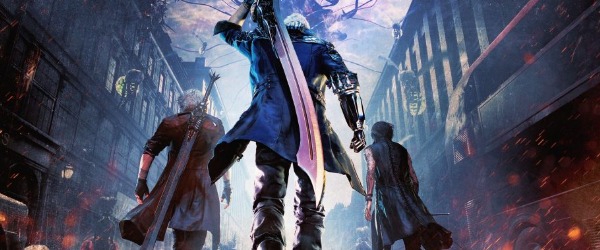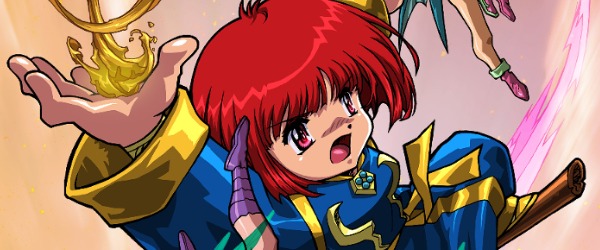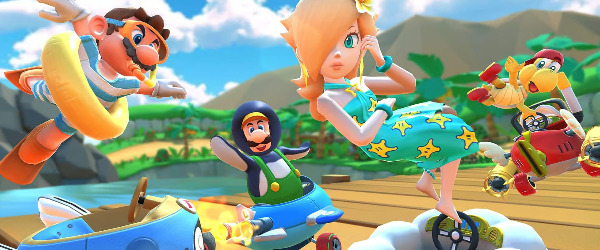
Greatest Video Game Composers: Akira Yamaoka - Article
by Taneli Palola , posted on 13 April 2016 / 8,669 ViewsMusic can serve many different purposes in video games. It can be a simple static track that plays in the background of a specific location, or something that dynamically changes depending on the players' actions. Regardless what its role within the game is, the best video game music has the ability to enhance the mood and atmosphere of a location or scene. A great song can make a moment the player might otherwise not even think about unforgettable. There are certain composers who are masters at capturing the mood and tone of a scene in a single song, and today we're talking about one of the all-time greatest composers at doing exactly that, Akira Yamaoka.
Yamaoka began his career as a video game composer in 1991, when he composed part of the soundtrack for a little known SNES game called Smart Ball. The game was developed by Game Freak, which would later be known for creating the Pokémon franchise. Curiously, the game was actually published by Sony. The soundtrack itself is decent, but nothing truly exceptional.
Following this Yamaoka would join Konami in 1993 as an in-house composer. For the next several years he worked on a variety of different games, usually together with several other composers. These included Contra: Hard Corps and Sparkster in 1994 and several Japan only releases between 1995 and 1997. Yamaoka's first notable solo composition was the soundtrack to International Superstar Soccer Pro in 1997.
In 1998 Yamaoka worked on several different games, with perhaps the most notable ones being Kensei: Sacred Fist and Poy Poy 2. Neither game attracted very much attention from the public, but they did demonstrate Yamaoka's ability to create different types of scores.
Yamaoka would then find out about a horror game being developed at Konami and, as it so happened, the game's original composer had just left said project. Yamaoka requested to join the development staff, as he felt he was the only one capable of creating the right kind of soundtrack for the game. This game was, of course, Silent Hill.
For the music in Silent Hill Yamaoka decided to go with an industrial style that gave the game a cold, harsh feel, which separated it from other video game music of the time. Interestingly, Yamaoka did not watch any of the scenes from the game before creating the music. In fact he composed the title's music without even having knowledge of the game's visual style. It was following the surprising success of Silent Hill that Yamaoka finally attained high acclaim for his music.
In 2000 he composed the music for Gradius III and IV on the PS2 and a long since forgotten PlayStation game called ESPN MLS GameNight with three other composers. But it was the year 2001 that would prove to be one of the most significant of Yamaoka's career.
In 2001 Yamaoka composed the soundtrack to only one game, but that game just happened to become one of the most revered horror video games ever created - Silent Hill 2. The game's soundtrack is one of Yamaoka's most enduring works, and he himself considers it his best score for a video game to-date. Personally, I would say this is the second best score in the series.
As was the case with the first Silent Hill, Yamaoka was also responsible for creating the game's sound effects, and with them he aimed to create an unnerving atmosphere that would surprise the player.
In 2002 he once again created music for just one game. Together with Sota Fujimori he composed the soundtrack to Contra: Shattered Soldier, which was the second time that Yamaoka had worked on a Contra game in his career. After this he would once again return to the series that had made his music famous worldwide.
Silent Hill 3 was Yamaoka's next big project, and his work for it would go on to earn him general critical acclaim once more. The soundtrack contains many of his most exceptional tracks and is my personal favourite score of his. It has a very unsettling, almost disturbing tone that complements the game beautifully.
By this point Yamaoka had established himself as one of the best composers working in the industry. In the 10 years he had composed music for Konami Yamaoka had also developed a style of sound that was all his own; one that other composers were by now often trying to mimic.
From 2004 to 2009 Yamaoka composed music for six different games, four of which were Silent Hill titles. The other two were Rumble Roses in 2004 and Rumble Roses XX in 2006, which are now mostly forgotten wrestling games that sold largely off the back of the sex appeal of the all-female roster of characters.
Silent Hill 4: The Room was the point at which the series changed dramatically. Not only did it feature a brand new setting and story but it was also the last Silent Hill game that was developed in-house by Konami. Development for all subsequent titles was outsourced to a variety of western developers and the quality of the games began to vary wildly as a result.
From 2007 to 2009 Konami released Silent Hill: Origins, Silent Hill: Homecoming, and Silent Hill: Shattered Memories. This is where the quality of the series in general began to decline, with releases often feeling very disjointed. Fortunately, there was at least one constant, and that was Yamaoka's music. Regardless of the overall quality of the game itself, the soundtrack was always reliably great.
After completing his work on Shattered Memories, Yamaoka would decide to leave Konami and bring his 16 year tenure at the company to a close. Soon after his departure from Konami it was announced that he had joined Grasshopper Manufacture, which was best known for being the home of Goichi Suda - the creator of No More Heroes and Killer 7. Yamaoka's first contribution here was the composition of two tracks for No More Heroes 2.
His first big project, however, was working on Goichi Suda/Shinji Mikami's Shadows of the Damned. From this point on Yamaoka would work almost exclusively on games made by Grasshopper Manufacture, although in the last couple of years he has worked on a handful of games by other developers as well.
2012 was an exceptionally busy year for Yamaoka, as he composed music for three different games on top of helping out with sound and music creation for two additional titles. He first composed the music to Grasshopper's shoot 'em up Sine Mora, then went on to create roughly half of the soundtrack for Lollipop Chainsaw, and finally he composed the music for Black Knight Sword, a 2D side-scrolling action game.
In addition to all of that he worked as the sound producer for Liberation Maiden and took on guitar duties for one of the songs in the soundtrack for Silent Hill: Book of Memories.
2013 was much slower for Yamaoka; he only really worked on one notable release - Goichi Suda's Killer Is Dead. The game itself received average reviews at best but Yamaoka's soundtrack is once again excellent, combining numerous different genres to create a very diverse sound for the game.
The following year Yamaoka worked on two fairly low profile releases - a side scrolling platformer called Short Peace: Ranko Tsukigame's Longest Day and a puzzle platformer called Murasaki Baby, neither of which achieved great success.
2015 was one of his slowest years since entering the industry with his only credit being a single remixed track for Persona 4: Dancing all Night. Yamaoka has actually been remarkably tight-lipped about his future projects as well. At the time of writing the only project he has confirmed being part of is the open world adventure game called Rime. The game itself looks very interesting, but the extent of Yamaoka's contribution to the soundtrack is still a mystery.
To end this look at the career of one of the greatest video game composers of all time, here is one of my favourite vocal tracks in all of video gaming:
Yamaoka is without a doubt one of the best video game composers working today. Very few composers have as much talent as he does when it comes to creating and heightening the tension and atmosphere of a scene or a moment using music alone. He has created some of the best video game soundtracks of the last 20 years for a variety of different types of games, proving he can do more than just horror music, for which he is deservedly most famous for. More than anything, Akira Yamaoka is a composer who has the rare ability to elevate the quality of a game through his music alone.
I'm sure many of you also have your favourite soundtracks and songs by Yamaoka, so please share them below. As always, thanks for reading.
More Articles
Love Psalm with Mary Elizabeth McGlynn if by far the best song. I can't even begin to describe how good that song is. The perfect build up of drum beats, ripping guitar riffs that hit at the perfect moment, amazing baselines, and the vocals hit the mark every time. It's one hell of a damn good rock song!
Yamaoka practically MADE Silent Hill. The music and sounds he created elevated the game and the madness.
Even thought Silent Hill has taken a nosedive in recent years, this franchise wouldn't be the same without Yamaoka.
Every team silent member was important
And no one ever said that they weren't. But this is an article about Yamaoka, and personally, the music stood out to me the most. So there.
Silent Hill 2 soundtrack. One of the best soundtracks ever (not just in games, but in music as a whole). Even if you've never played the game, you should still listen to the soundtrack.
as always, awesome article!
Harry Gregson Williams is awesome. Her soundtracks are good too = )
awesome! he does great work and really helped make silent hill what it is. i hope he is working on Let It Die, wouldn't be surprised.
love Akira Yamaoka






















